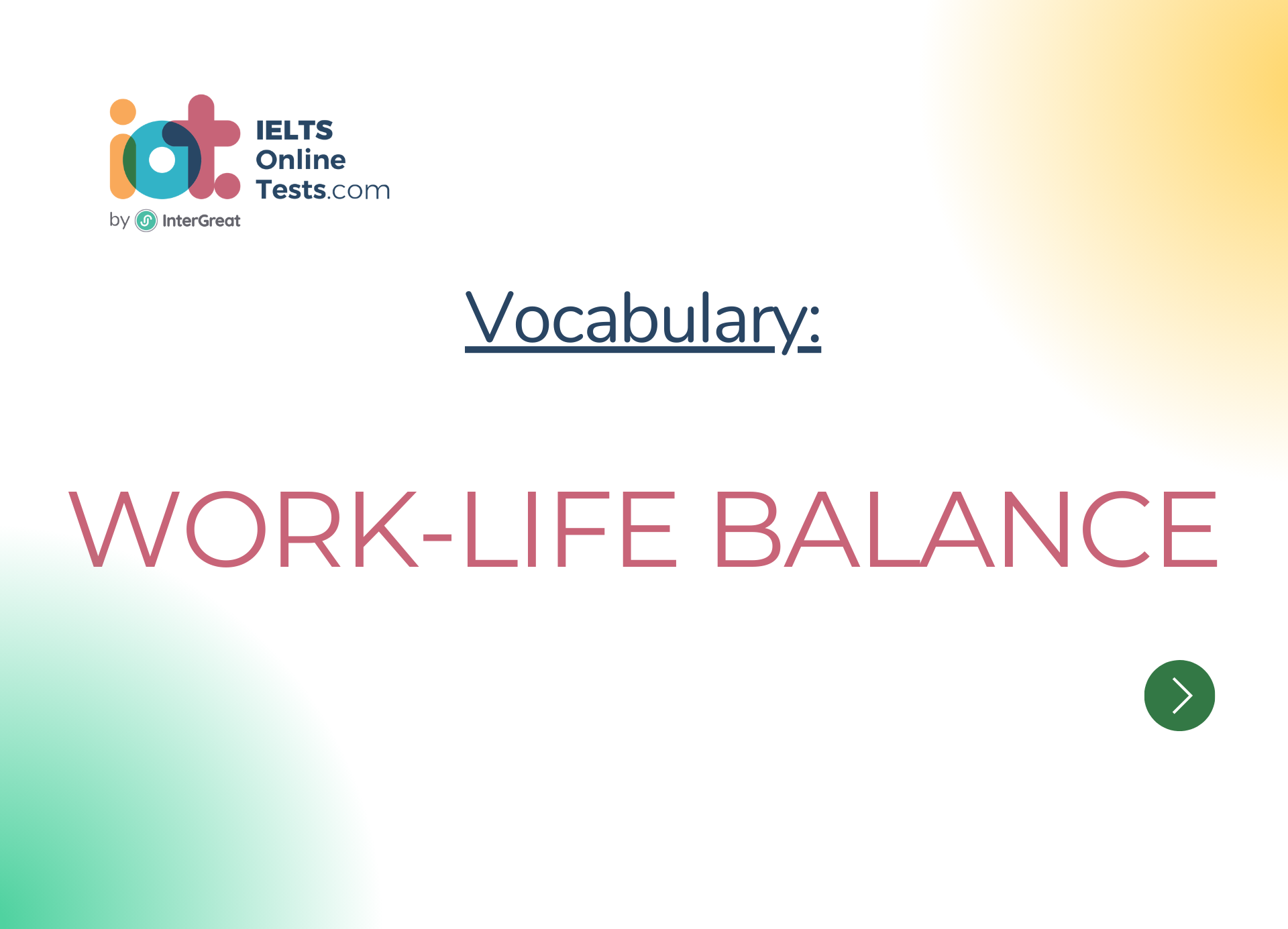
Work-life balance
Here are some vocabulary words related to "Work-Life Balance" in detail, suitable for the IELTS band score range of 3.0-4.5:
Work-life balance: The equilibrium between one's professional and personal life, ensuring that work commitments do not overshadow personal well-being and family responsibilities.
Flexible working hours: A work schedule that allows employees to have more control over their start and end times, accommodating personal needs and responsibilities.
Telecommuting/Remote work: The ability to work from a location other than the traditional office, often utilizing technology to stay connected and productive.
Flextime: A flexible work schedule that allows employees to vary their start and end times within predetermined parameters, providing them with greater control over their daily work hours.
Reduced hours/Part-time work: Working fewer hours per week compared to standard full-time employment, allowing for more time to be dedicated to personal activities or responsibilities.
Job sharing: An arrangement where two or more employees share the responsibilities of a full-time position, allowing for a more balanced workload and schedule for each individual.
Paid time off (PTO): Time granted to employees for non-working purposes, such as vacations, personal days, or illness, with regular compensation.
Family-friendly policies: Workplace policies that support employees in managing their work and family responsibilities, such as parental leave, childcare support, or flexible scheduling options.
Wellness programs: Initiatives aimed at promoting employees' physical and mental well-being, which may include fitness classes, stress management workshops, or access to wellness resources.
Boundaries: Establishing limits between work and personal life to maintain a healthy balance, such as avoiding excessive work hours or setting designated times for relaxation and family activities.
Time management: Strategies and techniques for effectively allocating time to work and personal activities, prioritizing tasks, and maintaining productivity.
Burnout prevention: Taking proactive measures to prevent or alleviate work-related exhaustion and stress, such as self-care practices, regular breaks, and seeking support when needed.
Time off: Paid or unpaid leave from work for personal reasons, such as parental leave, sabbaticals, or compassionate leave.
Workload management: Strategies for effectively distributing and prioritizing tasks to avoid excessive work pressure and maintain a healthy work-life balance.
Remote collaboration: Engaging in teamwork and communication with colleagues or clients through virtual platforms or online tools, allowing for flexibility in work arrangements.
Time-saving techniques: Methods or practices aimed at maximizing productivity and efficiency to save time and reduce work-related stress.
Stress management: Activities or techniques employed to cope with and reduce work-related stress, such as meditation, exercise, or mindfulness practices.
Personal boundaries: Setting limits and establishing clear expectations around work-related demands, ensuring personal time and well-being are respected.
Hobbies and interests: Activities pursued outside of work that bring enjoyment and fulfillment, providing a balance between professional and personal pursuits.
Support networks: Having a strong system of family, friends, or colleagues who provide emotional support, advice, and assistance in managing work and personal challenges.
Remember to practice using these vocabulary words in context to enhance your understanding and fluency. Engaging in conversations, reading relevant materials, and practicing writing with these terms will help you become more comfortable and proficient in using them accurately.




